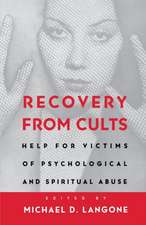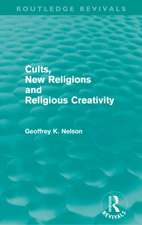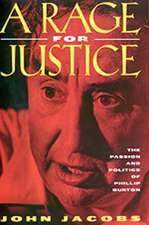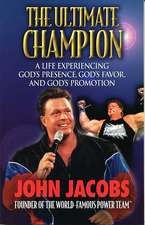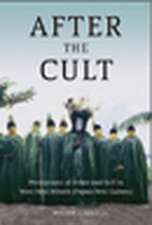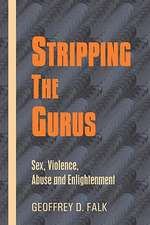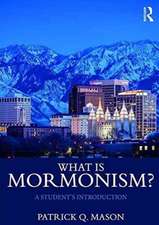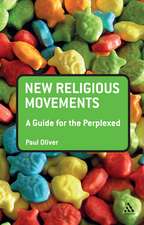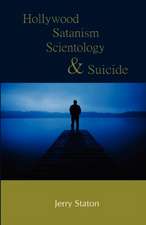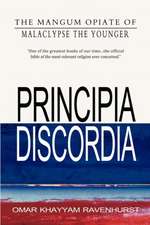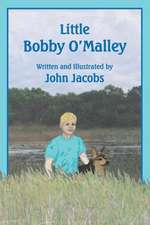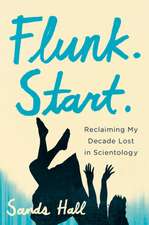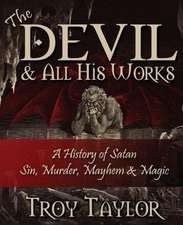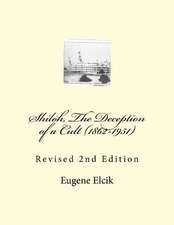Raven: The Untold Story of the Rev. Jim Jones and His People
Autor Tim Reiterman John Jacobsen Limba Engleză Paperback – 31 oct 2008 – vârsta de la 18 ani
For the first time in paperback, Tim Reiterman’s Raven provides the definitive history of the Rev. Jim Jones, the Peoples Temple, and the murderous ordeal at Jonestown three decades ago. This PEN Awardߝwinning work explores the ideals-gone-wrong, the intrigue, and the grim realities behind the Peoples Temple and its implosion in the jungle of South America. Reiterman’s reportage clarifies enduring misperceptions of the character and motives of Jim Jones, the reasons why people followed him, and the important truth that many of those who perished at Jonestown were victims of mass murder rather than suicide.
This widely sought work is restored to print after many years with a new preface by the author, as well as the more than sixty-five rare photographs from the original volume.
This widely sought work is restored to print after many years with a new preface by the author, as well as the more than sixty-five rare photographs from the original volume.
Preț: 140.63 lei
Nou
Puncte Express: 211
Preț estimativ în valută:
26.91€ • 28.78$ • 22.44£
26.91€ • 28.78$ • 22.44£
Carte disponibilă
Livrare economică 27 martie-10 aprilie
Preluare comenzi: 021 569.72.76
Specificații
ISBN-13: 9781585426782
ISBN-10: 1585426784
Pagini: 624
Dimensiuni: 159 x 228 x 46 mm
Greutate: 0.8 kg
Editura: Tarcher
ISBN-10: 1585426784
Pagini: 624
Dimensiuni: 159 x 228 x 46 mm
Greutate: 0.8 kg
Editura: Tarcher
Recenzii
“The seminal book on the story of Jonestown.” —Associated Press
“Unquestionably emerges as the most valuable book on Jonestown to date…Every piece of the puzzle is here.”—David Evanier, National Review
“An extraordinary inquiry into the individual pathology of Jim Jones…To assemble this portrait obviously required staggering research. The writing is sensitive and lucid. The result is a document which will illumine a dark corner of our era.”—Daniel Schorr “After reading Raven, there should be no more questions…A tour de force on the Rev. James Jones and the events that led his 900 disciples to drink poisoned punch on Nov. 18, 1978.” —Charlie Frush, The Philadelphia Inquirer
“This stands as the definitive history …carefully compiled and completely horrifying.” —Marshall Kilduff, San Francisco Chronicle
“Unquestionably emerges as the most valuable book on Jonestown to date…Every piece of the puzzle is here.”—David Evanier, National Review
“An extraordinary inquiry into the individual pathology of Jim Jones…To assemble this portrait obviously required staggering research. The writing is sensitive and lucid. The result is a document which will illumine a dark corner of our era.”—Daniel Schorr “After reading Raven, there should be no more questions…A tour de force on the Rev. James Jones and the events that led his 900 disciples to drink poisoned punch on Nov. 18, 1978.” —Charlie Frush, The Philadelphia Inquirer
“This stands as the definitive history …carefully compiled and completely horrifying.” —Marshall Kilduff, San Francisco Chronicle
Extras
Preface
Three decades have passed since more than 900 Americans suffered horrible deaths in the jungle of the impoverished South American country of Guyana. The events in Jonestown on November 18, 1978, orchestrated by a charismatic preacher named Jim Jones and triggered by the slaying of a United States congressman on a nearby airstrip, have long ago moved from worldwide headlines to the pages of history. Yet fascination with the final days of Jonestown and the life of Jones has persisted over the years.
One of the most shocking and baffling events of the last century, the demise of Peoples Temple has been chronicled in books, movies, documentaries, plays, scholarly studies and countless television retrospectives. The images of an American tragedy on foreign soil -- poisoned punch squirted down the throats of infants, families locked in final embrace, mounds of bodies bloated in the tropical heat -- have endured in print, photos, video footage and memory.
Jonestown has come to symbolize unfathomable depravity, the outermost limits of what human beings can visit on each other and themselves, the ultimate power of a leader over his followers. Although complex and elusive, the reasons for the collapse of the Temple’s utopian dream into a hellish nightmare have been reduced again and again to a simplistic interpretation: a Svengali led his compliant, even robotic, flock to mass suicide. But Peoples Temple was more than a creation of one man’s vision. The Temple was a product of its time and the search for alternative religions and social relevance in the post-civil rights and post-Vietnam eras. Its story also speaks to the timeless yearnings of the human spirit for a sense of belonging, to be part of something larger than ourselves.
Above the wooden, throne-like chair from which Jones lorded over his people hung a sign that said: “Those who do not remember the past are condemned to repeat it.’’ However, remembering the past is one thing, understanding it quite another. And this volume endeavors to do both, while piercing the many myths that have shrouded the truth about Jones, his followers, and the remote agricultural settlement that bore his name.
—Tim Reiterman
2008
Three decades have passed since more than 900 Americans suffered horrible deaths in the jungle of the impoverished South American country of Guyana. The events in Jonestown on November 18, 1978, orchestrated by a charismatic preacher named Jim Jones and triggered by the slaying of a United States congressman on a nearby airstrip, have long ago moved from worldwide headlines to the pages of history. Yet fascination with the final days of Jonestown and the life of Jones has persisted over the years.
One of the most shocking and baffling events of the last century, the demise of Peoples Temple has been chronicled in books, movies, documentaries, plays, scholarly studies and countless television retrospectives. The images of an American tragedy on foreign soil -- poisoned punch squirted down the throats of infants, families locked in final embrace, mounds of bodies bloated in the tropical heat -- have endured in print, photos, video footage and memory.
Jonestown has come to symbolize unfathomable depravity, the outermost limits of what human beings can visit on each other and themselves, the ultimate power of a leader over his followers. Although complex and elusive, the reasons for the collapse of the Temple’s utopian dream into a hellish nightmare have been reduced again and again to a simplistic interpretation: a Svengali led his compliant, even robotic, flock to mass suicide. But Peoples Temple was more than a creation of one man’s vision. The Temple was a product of its time and the search for alternative religions and social relevance in the post-civil rights and post-Vietnam eras. Its story also speaks to the timeless yearnings of the human spirit for a sense of belonging, to be part of something larger than ourselves.
Above the wooden, throne-like chair from which Jones lorded over his people hung a sign that said: “Those who do not remember the past are condemned to repeat it.’’ However, remembering the past is one thing, understanding it quite another. And this volume endeavors to do both, while piercing the many myths that have shrouded the truth about Jones, his followers, and the remote agricultural settlement that bore his name.
—Tim Reiterman
2008
Descriere
The seminal book on the story of Jonestown ("Associated Press") is restored to print for the 30th anniversary of the Jonestown massacre, with a new preface by PEN Award-winning author Reiterman.

